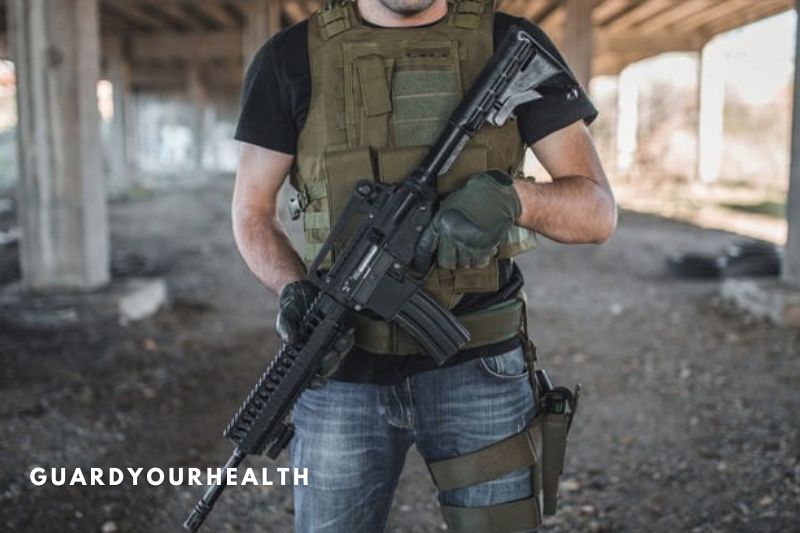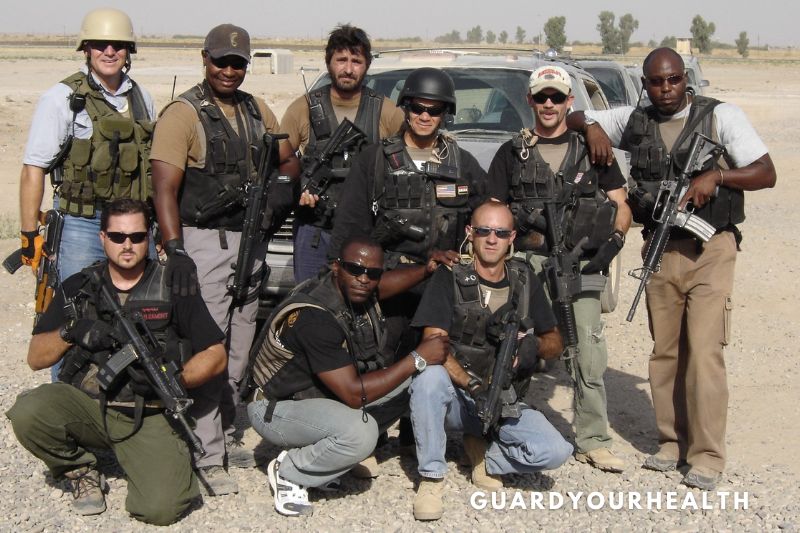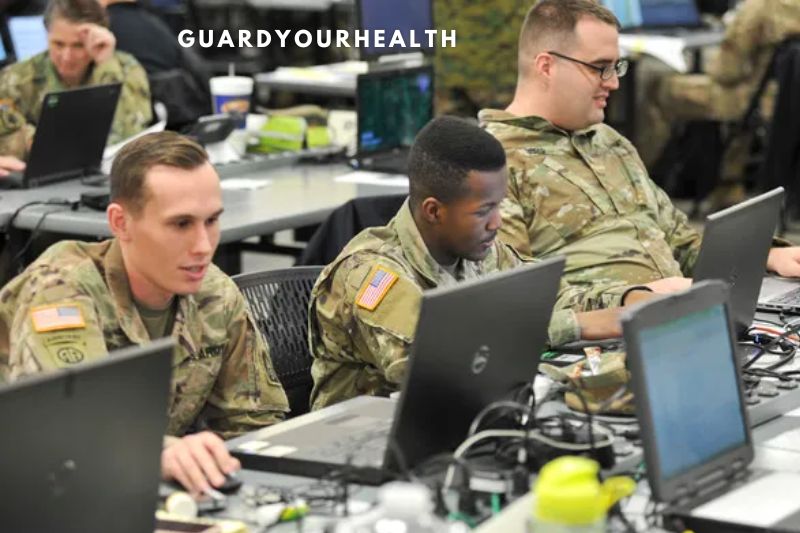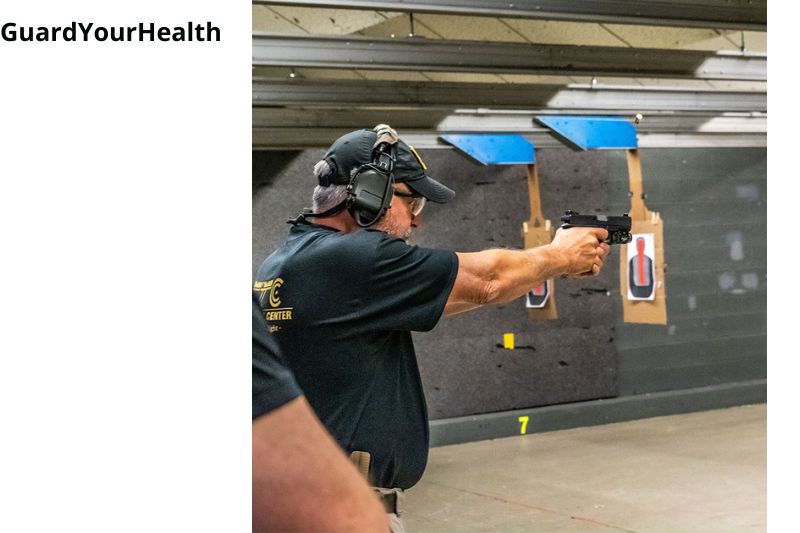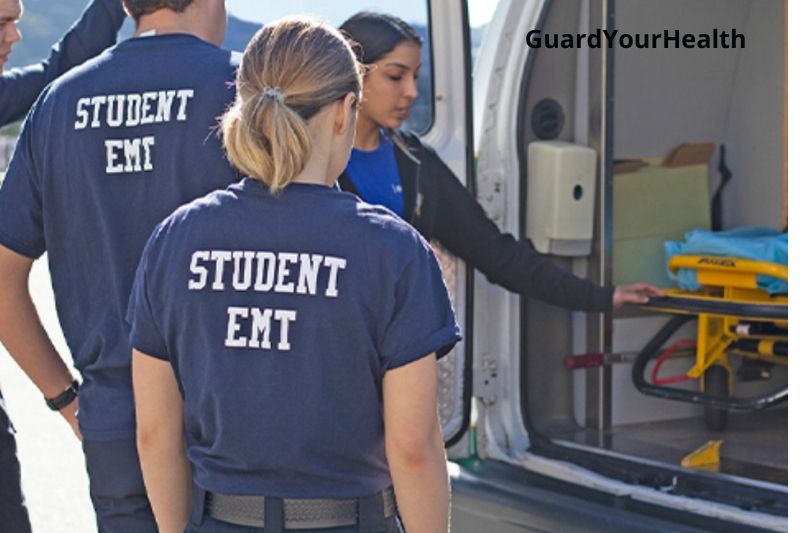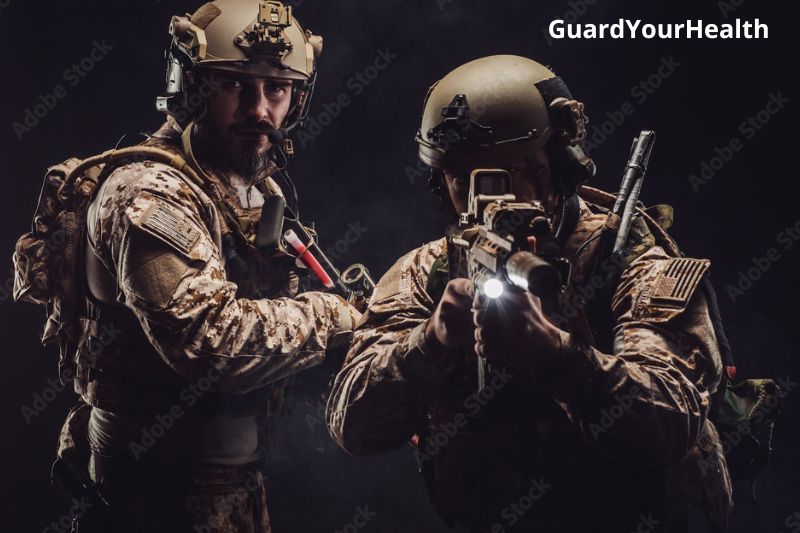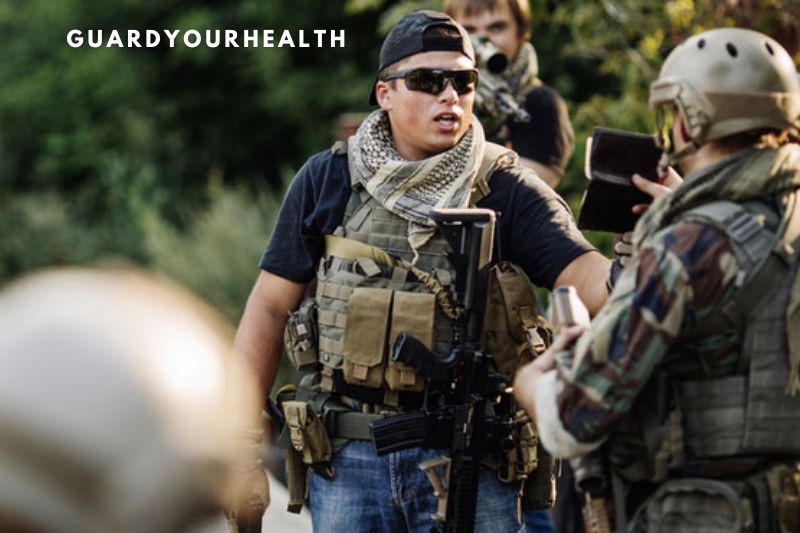How to become a private military contractor for the government? Becoming a private military contractor is not an easy task. There are many obstacles and challenges that you will face along the way.
However, it can be a very rewarding experience if you are up for the challenge. Private military contractors provide a valuable service to the countries they work in. They are often hired to protect important facilities and personnel. If you are interested in becoming a private military contractor, here are some tips to help you get started.
An Overview
Before Guardyourhealth gets started on becoming a private military contractor, here is a section devoted to additional important facts. This may assist you in determining whether or not becoming a PMC is the correct option for you.
What is Military Contractor?
A defense contractor is another term for a military contractor. It is someone with military experience who is eager to share their knowledge. There is no such thing as a job or a task. Governmental or non-governmental groups may employ a military contractor. In the first situation, they are referred to as what is an army contractor.
What Do PMCs Do
PMCs do not have a single task. A range of different things determines their responsibilities and tasks. Here are some examples of what PMCs do:
- Carry out anti-drug activities
- Combating Terrorism
- Employees on oil rigs or fields should be protected.
- Politicians and dignitaries should be protected.
- On-site security staff training
- Assist police or military personnel with their responsibilities.
- Protect the government building and the company headquarters.
- Work with special forces to undertake surveillance operations in combat zones.
- Assist high-risk personalities and diplomats with an armed escort.
- Collaborate with security specialists to plan safe routes and protective procedures.
- Serving as an armed guard on military supply transports between borders
- PMCs are generally recruited for specialized knowledge and abilities to provide private security contractor.
How Much Do PMCs Earn
How much do military contractors make? Although there are no specific figures since PMCs sometimes do not reveal their pay, the national average for comparable employment is $41,175 per year, compared to other private contractors at $32,480 per year and security officers at $47,539 per year.
Some PMCs are paid daily, ranging from $500 to $1,000 depending on who is recruiting and what the PMC is employed for. The rate may sometimes reach $400,000 per year.
What You Need to Do to Become a Private Military Contractor (4 Steps)
Step 1: Have a high school diploma, GED, or college degree.
To become a PMC, you must have a high school diploma or GED. Furthermore, having a college degree will set you apart.
Graduates from college often have an easier time applying for jobs with private military contractors. You will have an advantage over others if you have a degree in police science, criminal justice, or public safety.
Taking foreign language classes at colleges, such as French, Spanish, and Arabic, is beneficial if you seek a degree. These are the most often spoken languages in combat zones. Therefore you will undoubtedly gain an edge.
If one is offered, it is also beneficial if you participate in your school’s ROTC program. The ROTC program prepares students for military vocations, particularly regarding physical condition.
Step 2: Gain or collect security experience
You will also require security expertise. Serving in a police department, federal law enforcement agency (such as CIS), or the military is the best method. Experience should cover gun usage and control principles, self-defense methods, and security services, all of which will be valuable when submitting a bid to become a contractor.
If you lack these experiences, you should enroll in a basic course to get the necessary abilities. You will need to know how to handle weapons and weaponry in detail.
Familiarize yourself with common weapons used by military and security professionals, such as AR rifles, Mossberg shotguns, and Glock 8mm pistols. Local gun dealers might also assist you in this way.
Step 3: Put together an impressive CV to showcase yourself
The next critical step is to create an effective CV. Make it stand out by emphasizing your job qualities, talents, and experience. These should be related to the work that you want to do.
This phase is difficult and time-consuming, but it is necessary for today’s competitive environment. The stronger your résumé, the greater your chances of being employed as a PMC. The CV should be up to date and accompanied by an application or cover letter.
Top Tip: Consider hiring a professional resume writer to help you write a resume that highlights your talents.
Skills That You Should Have (On Your CV)
Military contractors should have the following skills:
Physical Fitness
It is critical to have enough power and stamina to defend yourself and others from danger.
Attention to Detail
Recognizing possible hazards and responding appropriately requires a sharp eye.
Handle Pressure
To remove risks and ensure safety, it is vital to remain cool and sensible in stressful situations.
Critical Thinking
Thinking “on their feet” is essential in the military, as events seldom go as planned. When confronted with potentially dangerous circumstances, the ability to think critically is essential.
Leadership
Lead teams and other individuals in completing duties and responding to less-than-desirable conditions. Despite popular belief, you will not be “on your own” or operating independently as a PMC.
Interpersonal Communication
Clear communication is essential when meeting and working with individuals from various backgrounds in the military. Ineffective communication does more damage than good.
Risk Management
How to be a contractor for the military? Most contractor tasks include risk assessments, which entail detecting possible threats and weak areas and being proactive in risk resolution.
First Aid & Cardiopulmonary Resuscitation (CPR)
Contractors may sometimes find themselves in critical circumstances where basic first aid and CPR are required. This is particularly important for people who work in foreign embassies or combat zones.
Step 4: Create your bid and send it to the DoD as an application
You may now design your proposal and submit it to the Department of Defense as an application for military security employment. After being chosen, you must provide all details about your past and your money. You will also require security clearances.
The DoD, or Department of Defense, will conduct the checks. It might take many months to finish. You will also need to complete several additional examinations to demonstrate your competence. For example, your physical health, self-defense skills, and armament handling will be evaluated.
How Can You Boost Your Chances of Getting Hired As a Private Military Contractor?
Tip 1: Complete your college degree
Completing a degree could be a good idea if you’re in college and working on a degree.
If this is not an option, you might pursue another course that will offer you an advantage over others when it comes to being employed as a private military contractor.
Courses in criminal justice, police science, public safety, or military science will strengthen your position as a private contractor to the military.
Learn foreign languages, particularly Arabic, Spanish, French, and English.
These are the most often spoken languages in conflict zones, and knowing them may help you in this situation.
Once you have completed your degree, you must get TOEFL certificates to be allowed to teach.
Tip 2: Get basic gun training skills
Can you be a private contractor without military experience? If you do not have military experience, you must have basic weapons proficiency and gun handling experience.
Visit gun shops and get acquainted with typical guns used by security and military personnel.
Beretta M9, Glock 9mm, AR rifles, SIG P220 series, Mossberg shotguns, Remington, AKs, and other typical military weaponry include:
Tip 3: Check the legalities of becoming a private military contractor overseas
Some nations’ constitutions forbid residents from working as private military contractors abroad.
To prevent disappointment, it is essential to double-check the legislation before advancing.
It would help if you also looked into the legality of various layers of activities inside the security department to see which are unlawful in your native nation.
Tip 4: Gain relevant experience
Many private military contractor positions require candidates to have prior military or security experience in the United States.
To get expertise in the security industry, you might apply to work as a law enforcement officer at the municipal or state level.
Check the qualifying criteria for law enforcement officials in your state to discover whether it is an area you may abuse.
Most, however, will need you to complete police, public safety, or peace officer school.
Tip 5: Create an impressive CV
Concentrate on your work abilities, credentials, and experience that are directly related to the positions you want to do.
You might hire a professional to create an appealing CV highlighting your key talents.
In today’s competitive environment, it is essential for a private military operator to have all of the necessary credentials and abilities, as well as the proper résumé, to increase your chances of being employed.
Tip 6: Become a paramedic
Becoming a paramedic is easier than getting employed as a private military contractor if you don’t have combat experience.
Because of your medical credentials, you may become a gun-carrying security contractor without previous military or security experience.
You will be equipped even if you are not employed mainly as a shooter. Paramedics assist troops on the battlefield.
To increase your chances of employment, you may need to get weapons/security training and your medical qualifications.
In this manner, you won’t be a burden on the battlefield.
Being a paramedic/nurse/doctor will make you a valuable asset to the military. Most of the time, they will go to any length to acquire you a contract, particularly when medical personnel is in short supply.
As a result, you may need to invest some of your earnings to attend nursing school and get a certificate or degree in any medical profession.
Your expertise as a medical practitioner on the battlefield will also help you get respect when you return home.
Without Military Experience, Become a Private Military Contractor
If you wish to become a private military contractor without military experience, research the firms that hire non-military PMCs before submitting your application.
G4S, KBR, Academi, Vinnell Corporation, and Northbridge Services Group are examples of well-known corporations in the United States. Other top organizations might be found online.
Each company will have various job vacancies advertised, so choose the one that best matches your talents and expertise.
Firefighters, records managers, security alarm monitors, armor vehicle mechanics, driver attendants, water treatment plant operators, background investigators, proposal writers or managers, and unarmed security officers are common PMC professions that do not need military experience.
The roles will have specific private military contractor standards that you must meet to be considered for an interview. As a result, make certain that you are well-versed in your credentials.
Private Military Companies Pay vs. Army Pay
Private military corporations do not reveal all necessary information about their payroll and clientele.
Furthermore, since their contracts compel secrecy, the contractors who worked for these firms seldom discuss the specifics of their contracts.
According to CNN, private military contractors earn between $500 and $720 daily.
Pay in the United States Army is determined by rank and experience.
The higher your level, the greater your obligations, and the corresponding remuneration. A private trainer who specializes in advanced training earns $1,468 per month.
A sergeant with more than five years experience gets a basic monthly salary of $2,448.
Their pay varies according to rank, with an army officer earning an average yearly salary of $80,157.
Conclusion
Private military contractors provide a valuable service to the government and private companies. They are highly trained and skilled in various areas, including security, logistics, and communications. Private military contractors are a cost-effective way to provide these services, offering a high level of flexibility and customization. Thanks for reading.


